Assembly election: Parties' red lines in Stormont talks
- Published
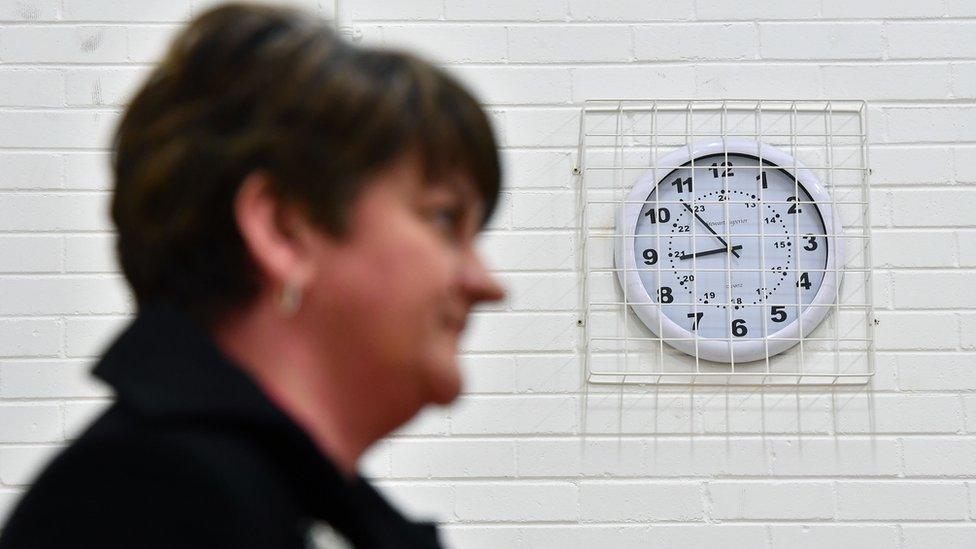
Tick, tock, tick, tock...
The main political parties have spent the past three weeks talking to each other, as well as the UK and Irish governments, in an attempt to break the deadlock that threatens devolution.
But now that Monday's 16:00 deadline to reach a power-sharing agreement has passed, the threat of another snap Northern Ireland Assembly election looms large.
So, where does each party stand in the talks and what are their demands?

Democratic Unionist Party
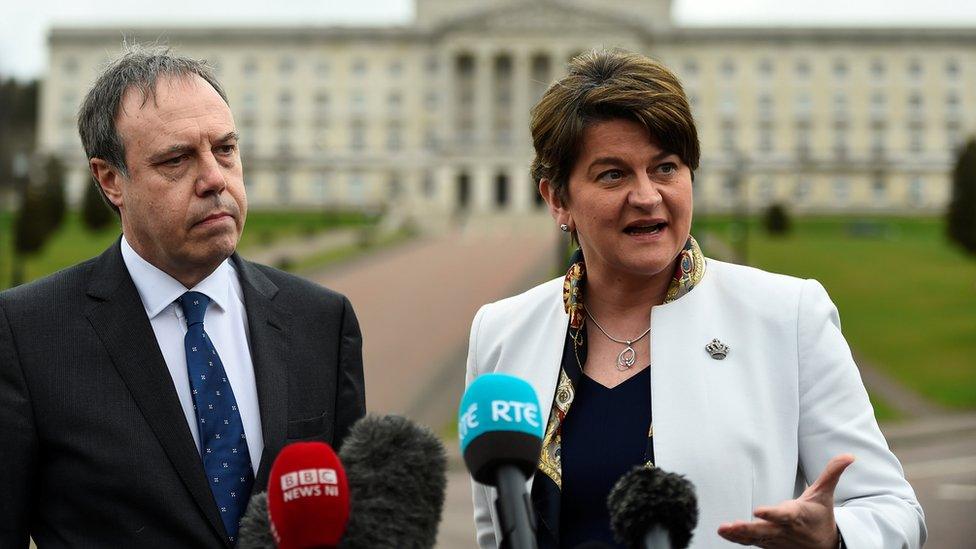
Just as it has been a sticking point at political talks tables down through the years, the legacy of Northern Ireland's Troubles is again one of the biggest issues facing the parties.
The DUP believes investigations into Troubles killings have an undue focus on the Army rather than loyalist and republican paramilitaries, even though the police say the figures suggest otherwise.
Party leader Arlene Foster says she wants to see a "proportionate, fair and balanced system" in dealing with murder cases from the conflict.
A spotlight is also on Mrs Foster's position as first minister after Sinn Féin said she could not hold the role, at least until the public inquiry into the controversial Renewable Heat Incentive scheme is over.
But she had warned that if Sinn Féin sticks to that stance, then she will have something to say about who it puts forward as deputy first minister.

Sinn Féin
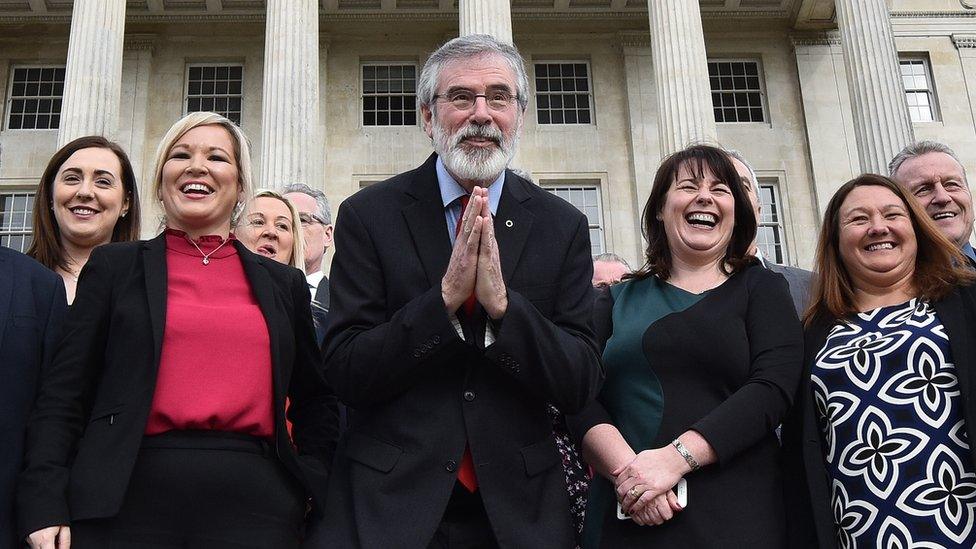
Under the stewardship of Michelle O'Neill, Sinn Féin was the big winner in this month's snap assembly election, closing the gap on the DUP from 10 seats to a solitary one.
Mrs O'Neill has made it clear that her party will not enter an executive with Arlene Foster in the first minister's post.
But Sinn Féin president Gerry Adams said the DUP leader's position at Stormont will only be discussed once overall agreement has been reached on broader issues that divide the parties.
Among the top priorities for Sinn Féin are a guarantee of legislation to give official status to the Irish language, a bill of rights, and an agreement with the UK government releasing funding for and information to inquests into Troubles deaths.
The government, however, has shown little willingness to budge on the legacy inquest funding, Mrs O'Neill has claimed.

Social Democratic and Labour Party
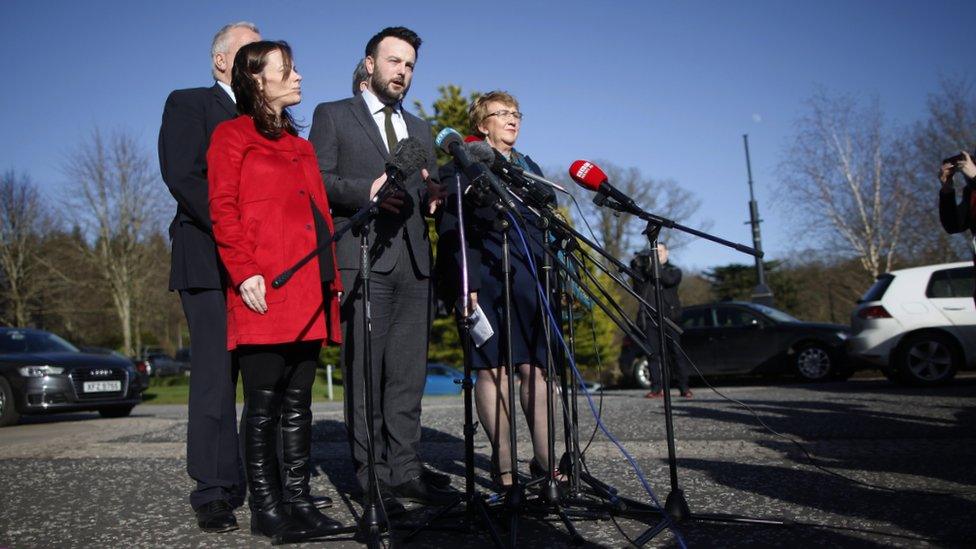
Colum Eastwood's party appears more willing to return to the executive after spending the previous mandate in opposition with the Ulster Unionists.
But Brexit is the primary issue for the SDLP, and Mr Eastwood has said he and his colleagues will only consider joining an executive that has agreed on the "challenges" that the UK's withdrawal from the EU will present to Northern Ireland.

Ulster Unionist Party
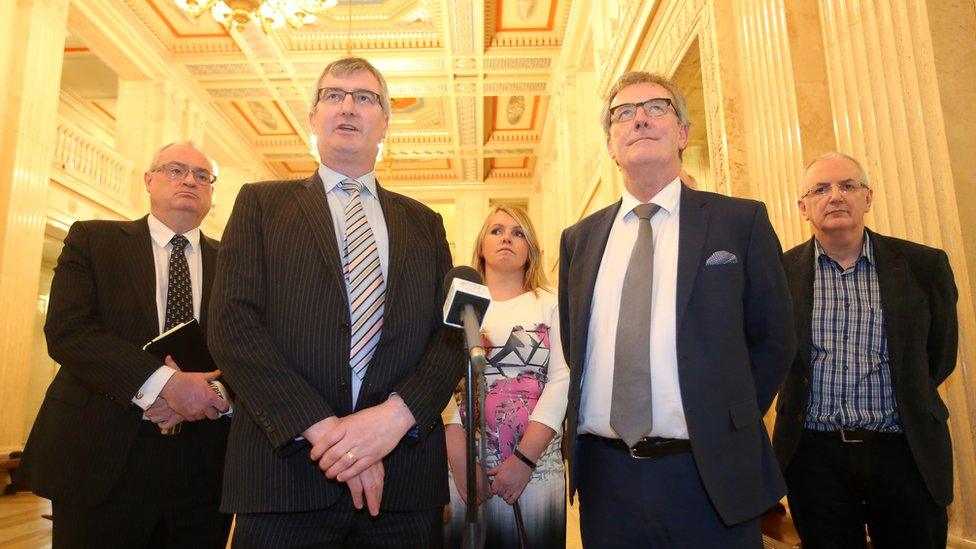
With leader Mike Nesbitt stepping down shortly after the Ulster Unionists' capitulation at the polls, the MP Tom Elliott has taken on the role of the party's chief negotiator in the talks.
Troubles legacy matters are high on the agenda for the party, and it has taken issue with the Irish government.
The Ulster Unionists believe it must do more to fulfil its responsibilities on the matter.
Mr Elliott said during talks that it needs to provide "full disclosure" of sensitive information linked to Troubles murders, to allow progress on long-awaited inquests.
"Unless they are going to bring us more information and bring those victims more information then I feel they are failing in their duties," Mr Elliott said.

Alliance Party
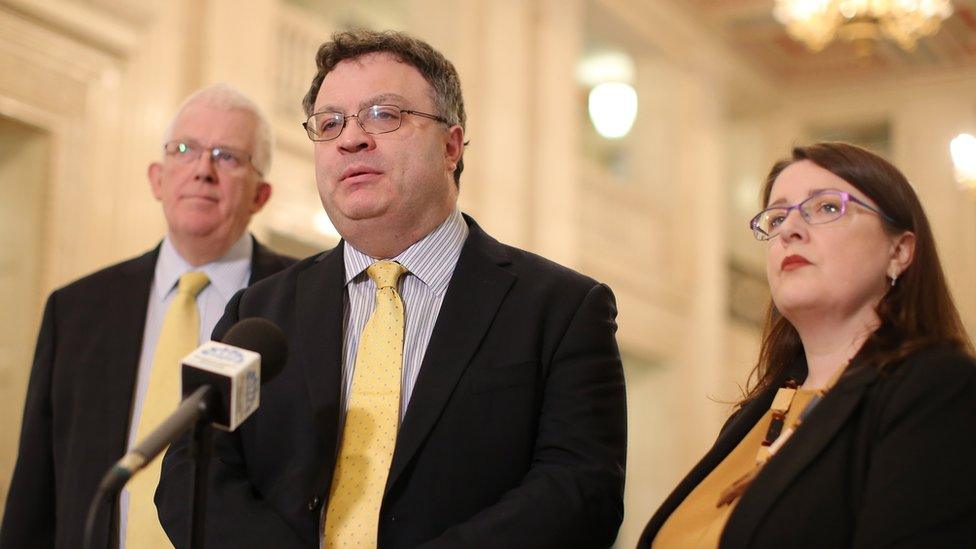
An unwillingness by the DUP to reform the assembly's petition of concern was one reason why the Alliance Party did not enter the executive after last year's election, and that remains a major issue.
The petition of concern effectively allows MLAs to veto any proposal or legislative change in the assembly, but 30 members are required to sign it before it become effective.
Brexit is also a sticking point for the Alliance Party - the previous DUP and Sinn Féin executive failed to form a strategy for how Northern Ireland would handle the UK's withdrawal from the EU.
Deputy leader Stephen Farry said there now needs to be an agreed way forward between those parties.